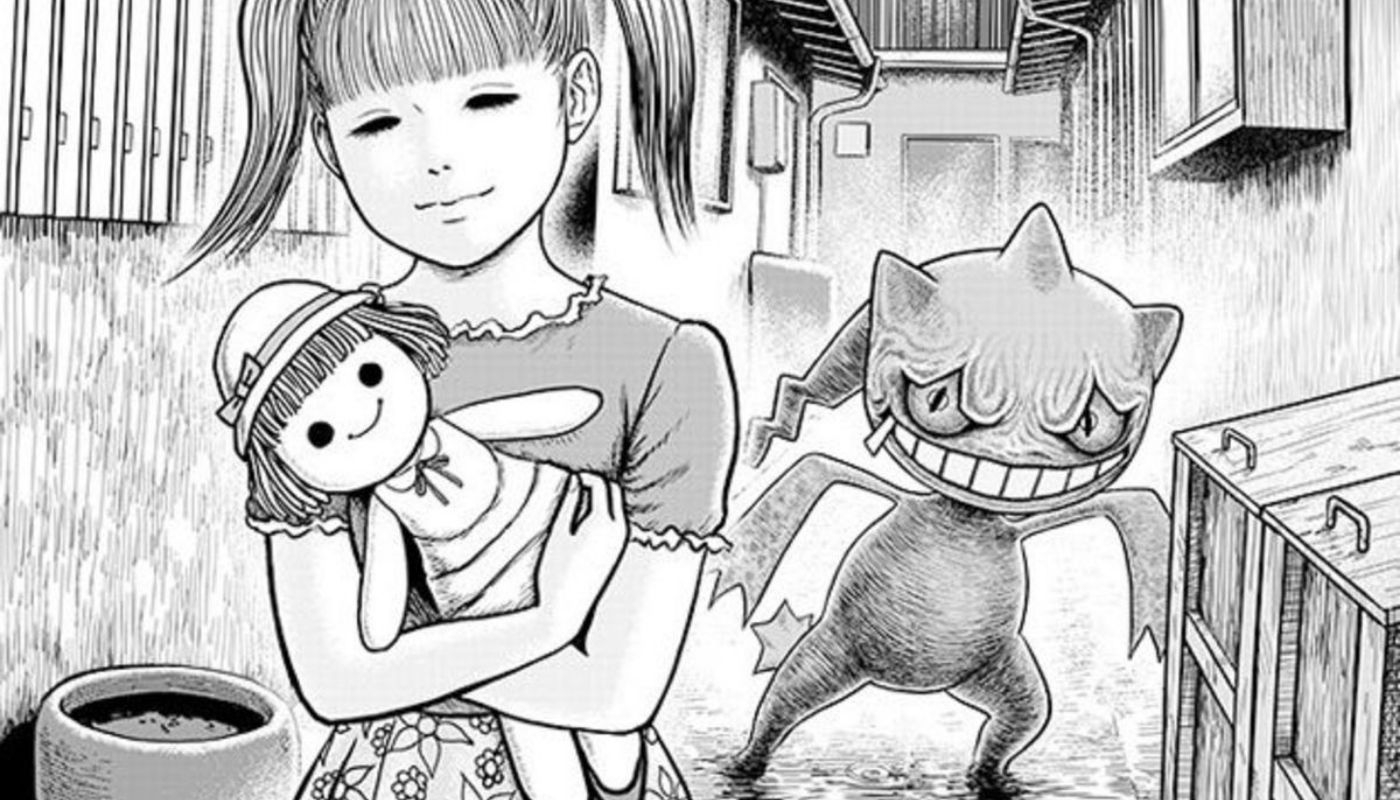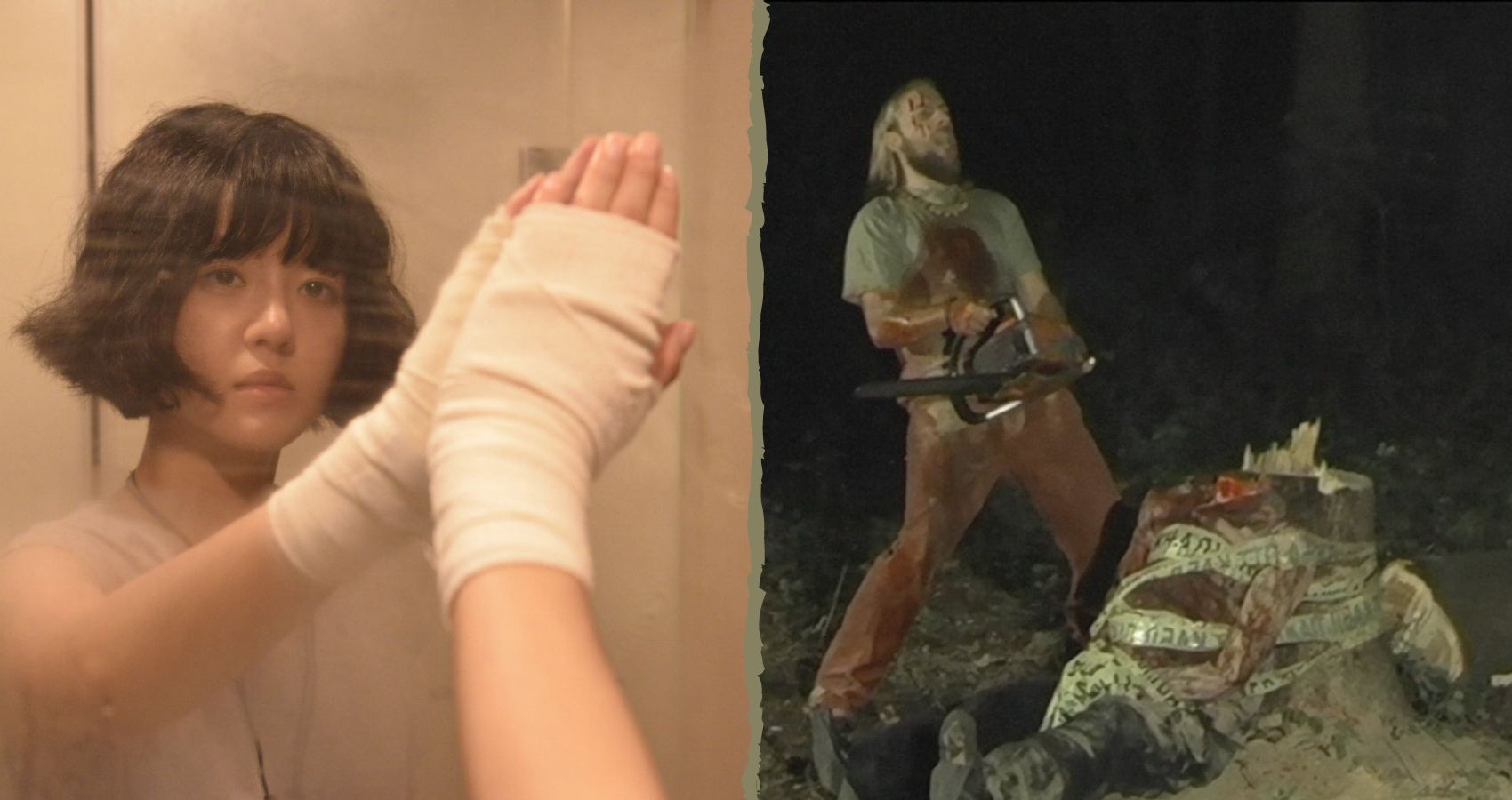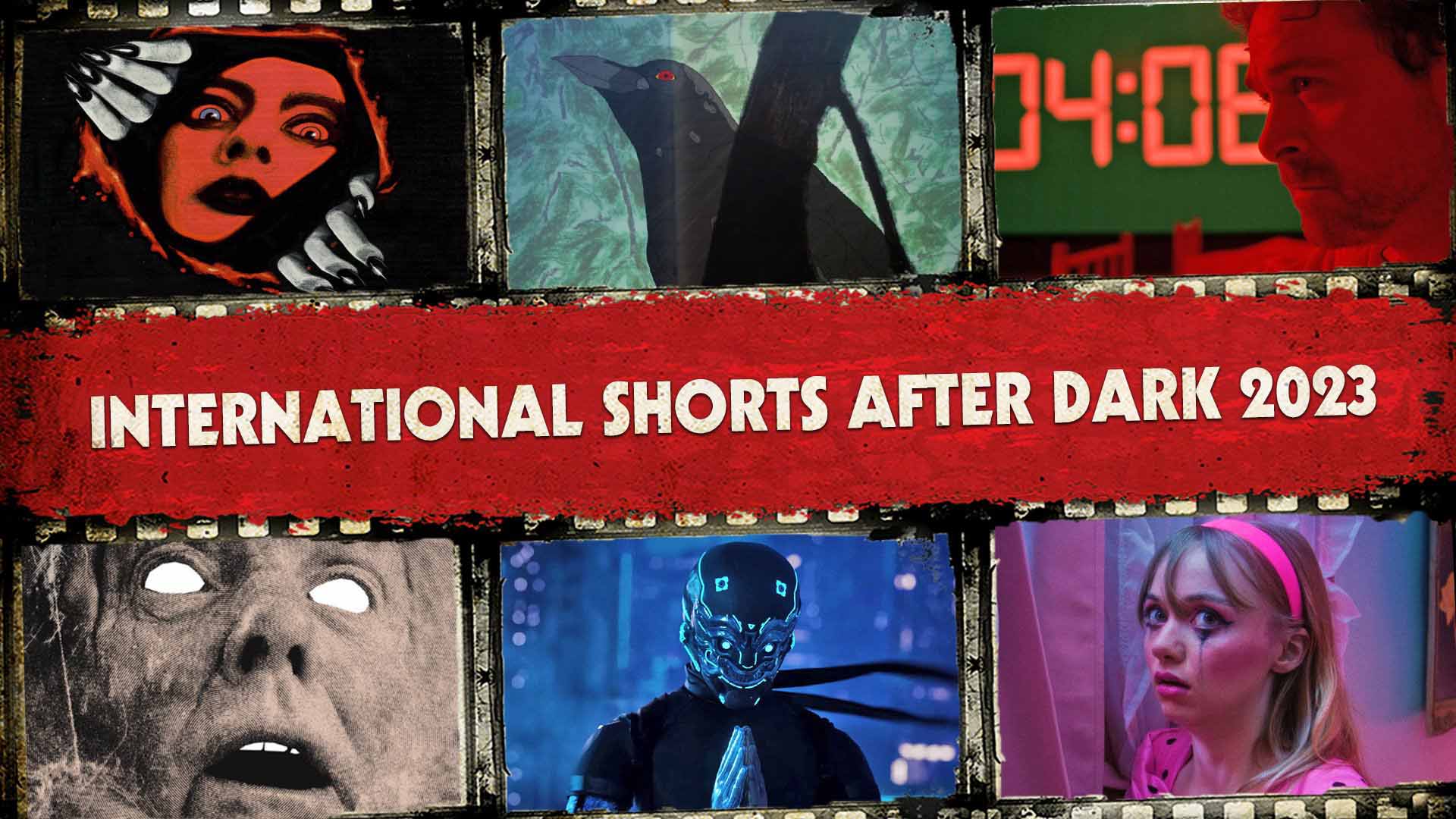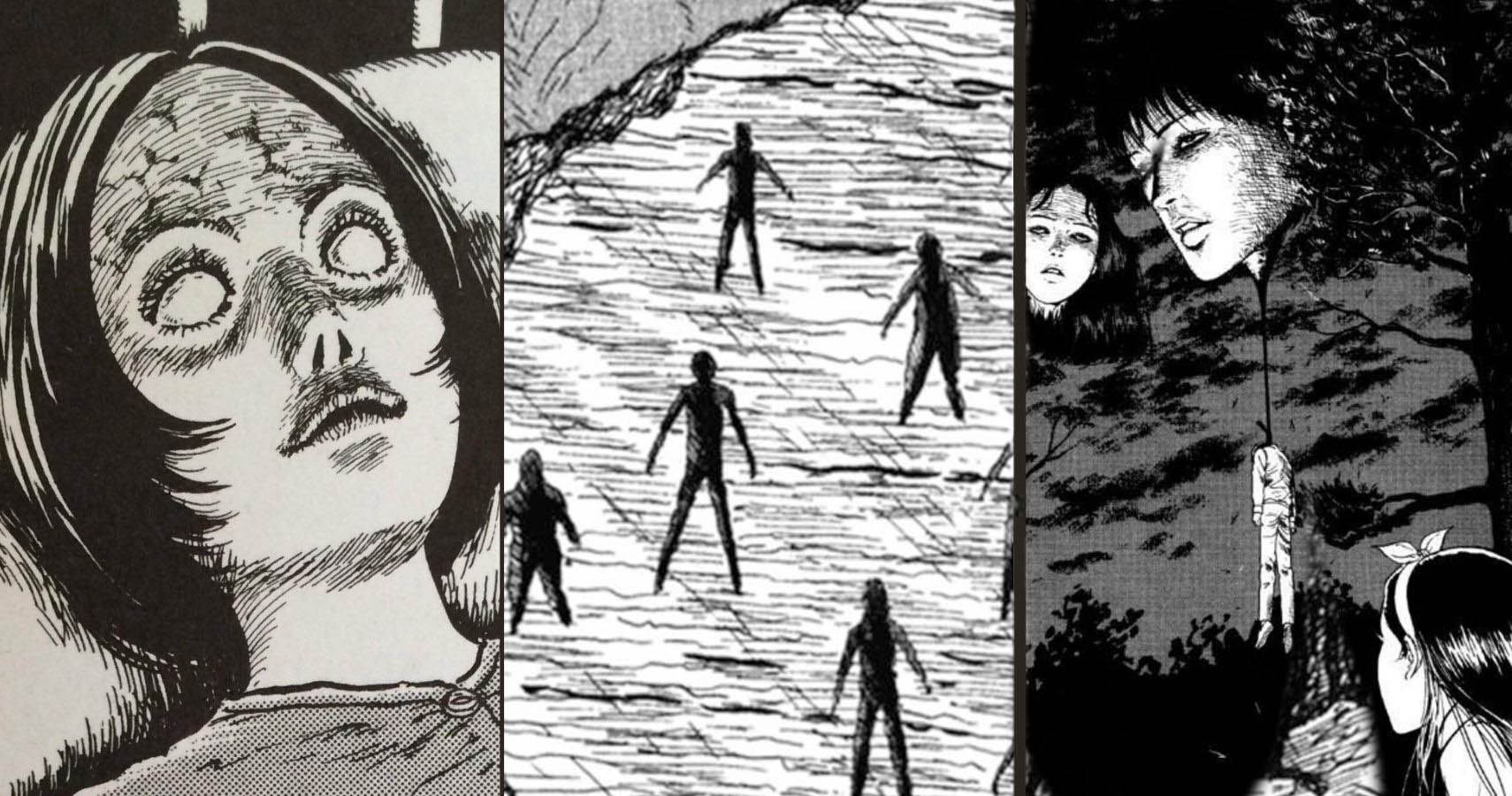
Junji Ito has been writing horror since 1987. Nowhere near finished, he has several more tomes set for release this year. Often called the Stephen King of Japan, his works are atmospheric, detailed, and full of horror both physical and psychological. Here at The Grimoire of Horror, we have curated our top choices from his numerous short stories: full of terror, beauty, and tragedy.
Earthbound
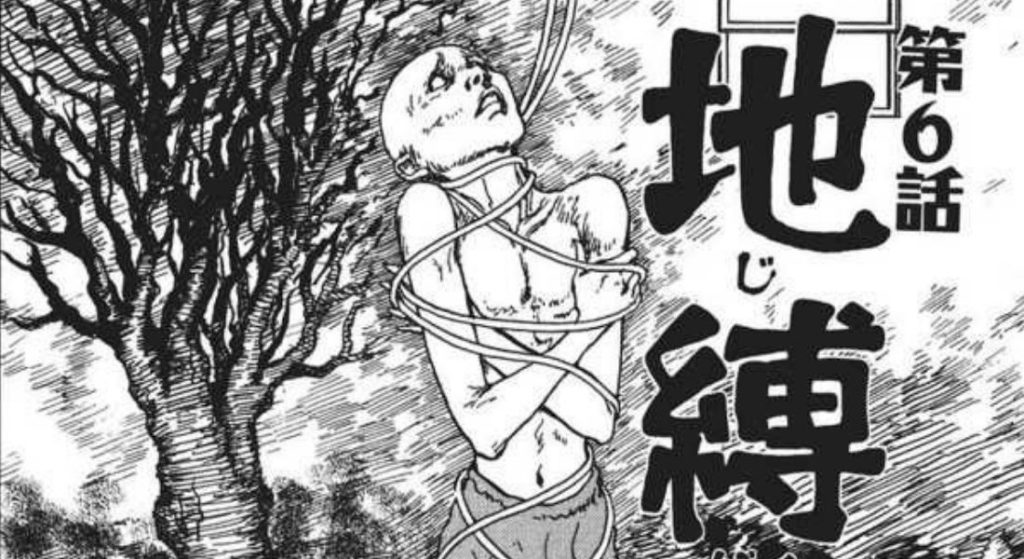
“Earthbound”, featured in Smashed, is less about scares and more about profound inner workings. This story is one of Ito’s that has affected me the most. I often think back upon it, whether it’s processing my own feelings, or considering the implications it has on society. I greatly relate to poor Asano, and I feel that “Earthbound” pays respect to her trauma in the best way. While she has closure, her situation really hasn’t changed at the end of the story. Ito’s delicate handling of grief, guilt, and the darkness of humanity are skilfully rendered, as are the profound reactions to the appearance of those earthbound in the story. As you read the story, what do you feel guilty about? (Quinn Magick)
Enigma at Amigara Fault
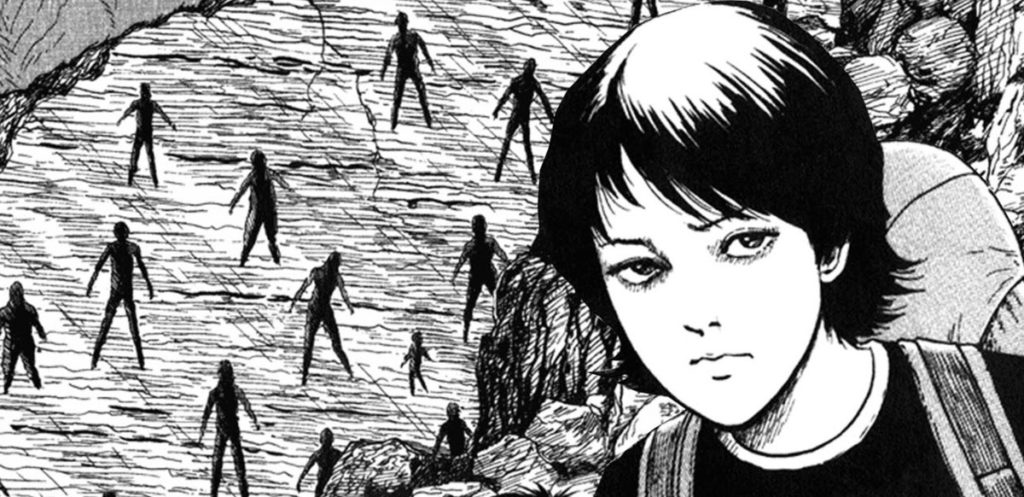
This is my all time favorite Junji Ito story. It oozes ambient tension throughout, making the reader feel increasingly more uncomfortable as the story progresses. The revelation of the human-shaped holes really pushes the story into its next gear, increasing the tension with questions of the origin of the hole and also the use until people start entering holes strangely designed for their shape. This evokes a terrifying sense of claustrophobia as they sink hundreds of feet into the mountain until becoming trapped.
The true horror is unveiled on the last page, using the uneasy tension and claustrophobia; adding exquisitely disgusting body horror to finalize one of Junji Ito’s finest pieces of work. (Jim Cox)
Black Bird
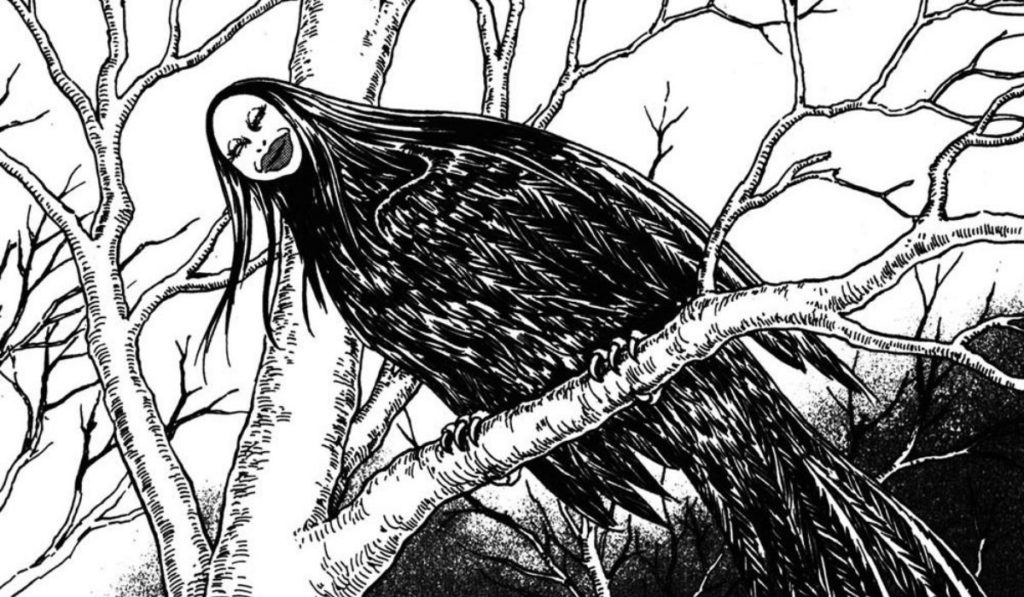
This features a femme fatale of pure Lovecratesque nightmare fuel. Misfortune befalls young hiker Shiro Moriguchi during one of his solo expeditions in the mountains. Stranded for a month before he’s found, Shiro’s tale of survival is a bizarre account of a nocturnal, spectral, be-feathered saviour who may or may not have his best interests at heart. Genuinely chilling and tapping into the cosmic fear that there are some things you can’t run away from no matter how hard you try.
Junji proves with Blackbird that he a master storyteller, interweaving intricate, dread-filled storylines until the final, fatal climax. I dare you to read this after dark… (Straight Outta Kanto)
Used Record

As an audiophile always looking for that next track to really hit the mark and keep me either bopping, relaxed or intellectually engaged, Used Record has become one of my favorite short stories of Ito’s. Additionally, the tale has a unique vibe in focusing on a horrific obsession with an intangible horror in the form of haunted music, reminiscent of The Music of Eric Zann by Lovecraft. With the two creators bound by similar themes, this short story reflects both able to make that which is indescribable an object of horror.
‘Used Record” was adapted to the Junji Ito anime series, and is also my personal favourite from the adaptation. (Adam Symchuk)
Whispering Woman

Whispering Woman features both my favorite revenge plotline and also the artwork of Ito. It’s such a unique storyline to me that I still can’t get over it. Ito is often reserved when it comes to using twists, which makes the one in this story an unexpected occurrence, yet an appropriate use of the often trite convention. The lengths that Mitsu went to had me applauding her, and always wanting her on my team. Whispering Woman brings new meaning to “a woman scorned”.
This story also leaves a lot to ponder. Did Mitsu go into the job with her plan in mind, or did it form over time as she got to know Mayumi? Would Mitsu have snapped and killed Aga at any point if she hadn’t died? I’d also love to know what happened to Mayumi afterwards. While I have a lot of questions, I feel like it’s a testament to the immersion of the plot, and not necessarily an unsatisfying narrative to fail providing clear answers. What are your thoughts on “Whispering Woman”? I’d love to hear them! (Quinn)
Long Dream
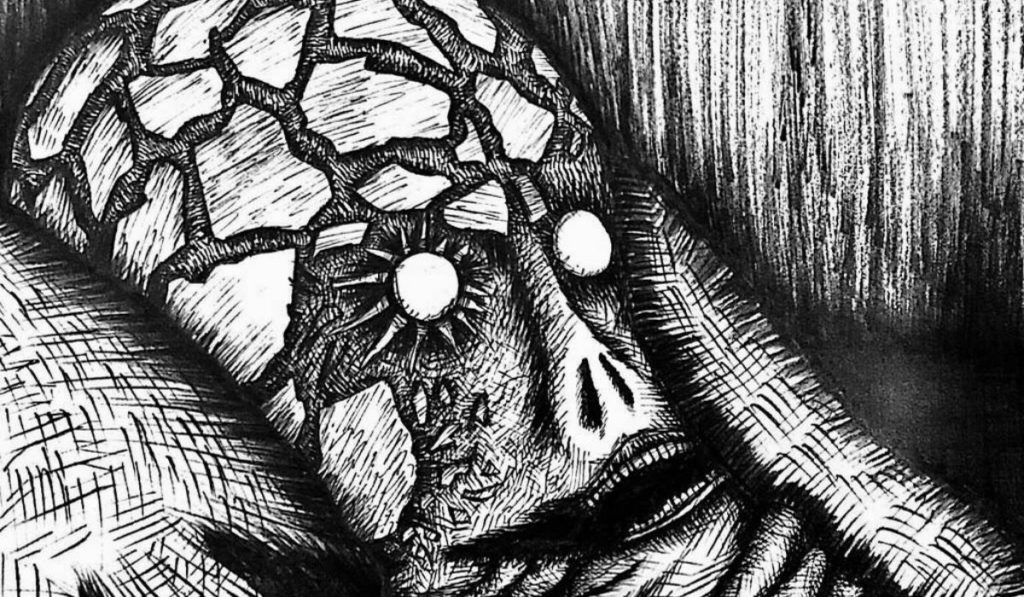
Being affected by insomnia, this story resonates with me in a personal way. Long Dream challenges the concept of reality and one’s existence in this reality through Tetsuo’s struggle to cling to who he is as a person and the transitive state of his body. As months turn into years and even decades during Tetsuo’s dreams, he struggles to remember the most basic of details about the previous day, or even where he is, through his warped sense of time. This tale questions the defining qualities of how time can be experienced by individuals and that time could be less a law and more a concept, rendering these subject to more subjective interpretation based on our consciousness and individual levels of understanding.
His body’s progressive evolution brought on over the thousands of years of life he has experienced brings an unnatural valley effect, a creature so closely resembling human’s natural evolutionary paths to evoke a primal fear that resides deep within. (Jim)
Dissection Chan

Dissection Chan‘s Ruriko Tamiya is a larger-than-life caricature of Ito’s other female roles. All the subtle fetishistic nuances peppered throughout his work positively explode from the page of this story. Ruriko is a woman with a burning need to be dissected for sexual gratification. Graduating from slicing and dicing wild animals in her youth, she now chases down her poor, bemused childhood friend so he may dissect her… Joining dating site after dating site in order to find her surgeon soul mate… Will Ruriko ever get her wish? Or is she destined for a karmic demise?
This is a gruesome yet captivating tale that leaves you with the old saying “it takes all sorts” hopping around your head long after you’ve turned the page. (Kanto)
Billions Alone
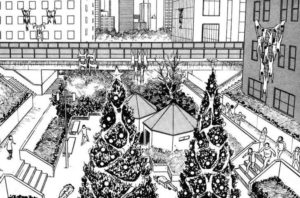
With Used Record as my favourite, there is not much of a surprise that the second music-inspired horror story comes as another personal favourite. However, in this case, the music feels more like a side note to the absurdity that is Billions Alone. This is one of Ito’s tales that really amp up in a short time, with a small event contributing to a possible killer becoming a global struggle while morbid constructions of people stitched together start appearing across Japan.
Even more chilling? That last panel to me is one of the most impactful the mangaka has ever penned! (Adam)
Library Vision
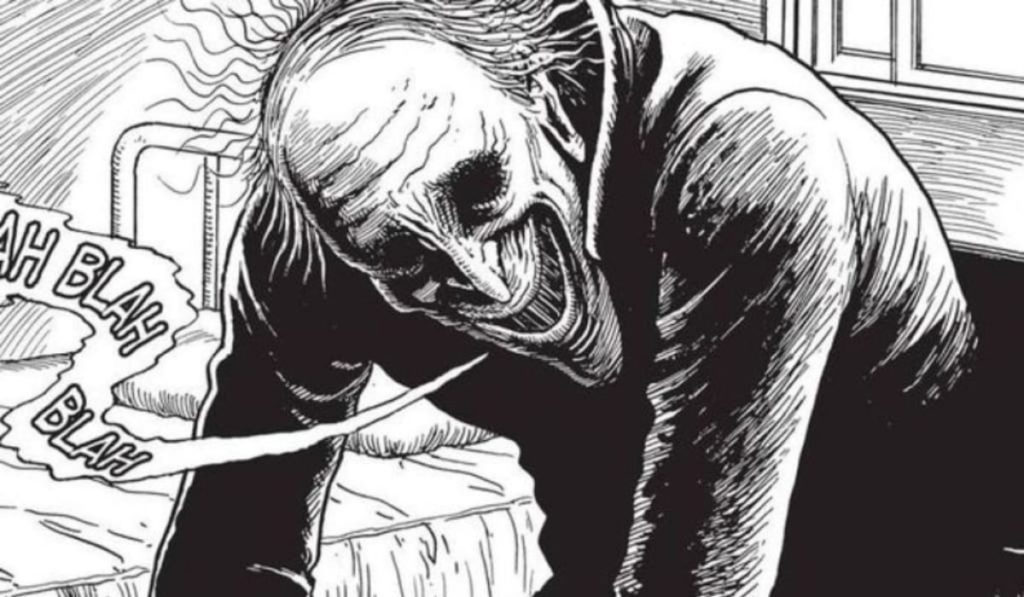
Library Vision is Ito’s deeply sad but intriguing moral story. What starts as a coping mechanism for a past trauma deviates into an obsession. As Goro becomes more obsessed with his family’s library, he loses more and more of his own mind. We witness his descent into madness in an exquisitely detailed bottleneck story with quite the impact. Out of all of Ito’s star-crossed characters, Library Vision stands out as one of the saddest endings to me. Horror is not always monsters, but sometimes our own minds. (Quinn)
The Thing That Drifted to Shore
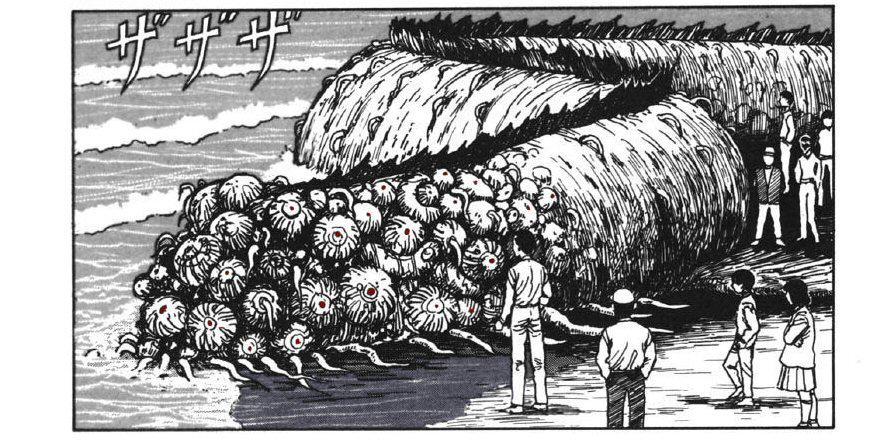
As a species, we know more about our moon than the oceans that cover our world. What lurks in the deep, dark abyss is only secret by our inaccessibility to explore such depths, allowing the mind to go crazy with possibilities of what could exist, from once thought extinct creatures to beasts unknown to science.
Junji Ito uses this in multiple ways with a huge terrifying sea creature. Inspired by a Lovecraftian nightmare, it brings a personal fear of deep open waters, the unanswered questions of that which is just out of grasp, and a level of claustrophobia. Through the monster’s victims being forcefully kept from death in a tight, confined space of the monstrosity’s stomach for several years, with no hope of any rescue, the victims experience unspeakable horrors the mind has yet to comprehend. (Jim)
Tomio: Red Turtleneck
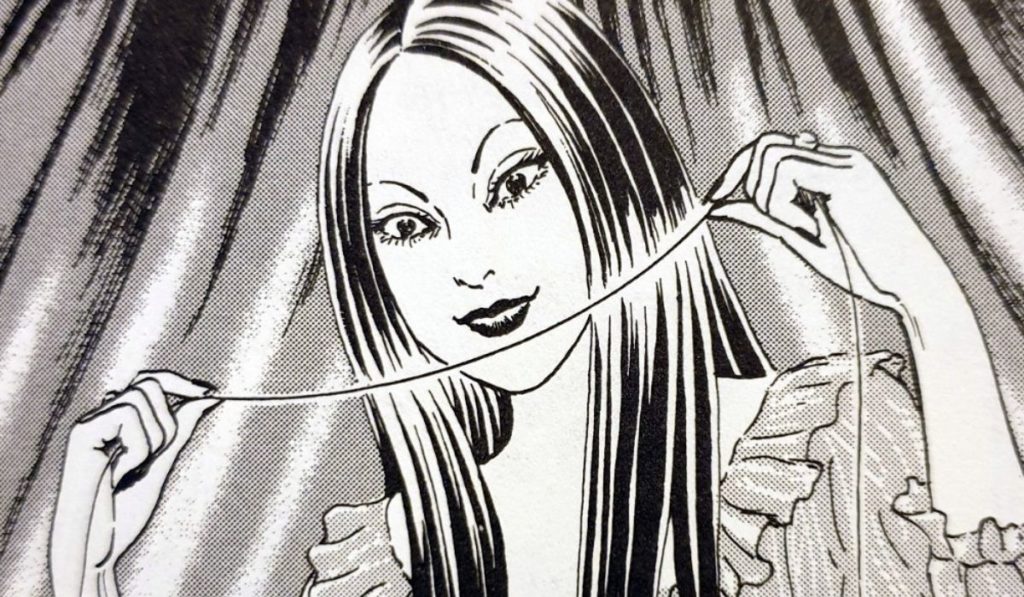
Tomio: Red Turtle Neck is a prime example of Junji’s ability to create a tense body horror with a relatively simple core concept, then adapt it with dark mystery and sick humour. Tomio is a young Lothario whose head has now become as detached as his emotions for his girlfriend. While Tomio’s head has technically been completely severed, it’s still resting precariously atop his neck. As long as he can keep his loose head from inevitably separating from his body, he’s granted a few more agonizingly tense moments of life.
It is perversely enjoyable to see Tomio do battle not only with his own ability to remain alive but also endure his aggrieved ex-girlfriend, and then manage the enchanting gypsy who severed his head in the first place. Part of you wants this love rat to receive his decapitated comeuppance, and another more primal part wants our hero to triumph over the odds. We all know Junji Ito can draw fantastical, grotesque spectacles of shock and gore, but to create such an effective and stomach-clenching story with so simple a concept is a testament to his genius. (Kanto)
Hanging Blimp

There is a degree of humour to be found within this short, both in creature design and some narrative points (Dad needs to get to work no matter what!). When I think of Ito having fun while still giving his readers a nightmare scenario, Hanging Blimp is my go to title. In addition, I always find myself drawn toward his stories that end in global chaos. The images of the floating faces in the Japanese skyline fill me with both glee and fear, it is some wonderfully absurd imagery. (Adam)
More Lists:
You’d be forgiven, dear reader, for being incredulous at something as childish as Pokémon appearing on our page. Yes, yes. Straight Outta Kanto can imagine what you’re thinking. Pokémon is… While zombies have traditionally been mostly influenced by Western culture, the zombie sub-genre has been getting a resurgence these past few years thanks to South Korea. Zombies are some of… As an aficionado of the dark side of cinema, I am constantly seeking out new films. While on my journey I come across lists featuring the worlds most extreme and… Welcome to the second part of our list Celebrating The Best Hidden Gems of The Found Footage Horror Genre! We covered a lot of ground already, but have just as… The international shorts on offer at this year’s Toronto After Dark Film Festival are among the strongest of the entire lineup. From a bizarre reunion with a lost family member… Food often plays a special role in horror, whether it is as a gross-out, a sentient adversary to be tackled, or the means by which a virus or alien mind…Dark Side of Pokémon – The Scariest and Creepiest Monsters
The Top 5 Most Memorable Zombies of Pinoy Cinema
10 Extreme & Disturbing Films You Probably Have Not Seen
Celebrating The Best Hidden Gems of The Found Footage Horror Genre (Part 2)
TADFF 2023 International Shorts Feature [Toronto After Dark Film Festival]
[April Fools] Recipe for Death: 10 Most Terrifying Foods in Horror
